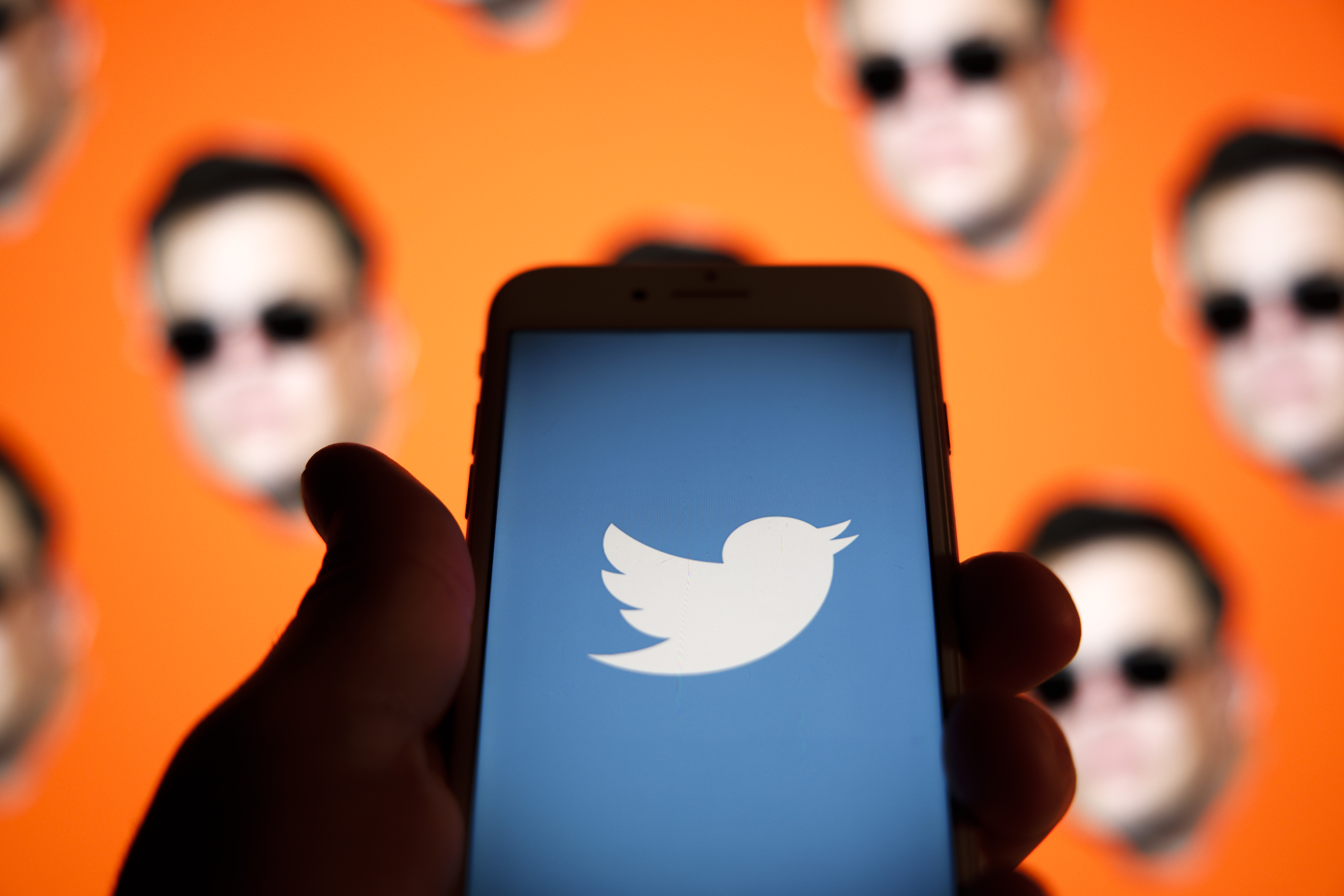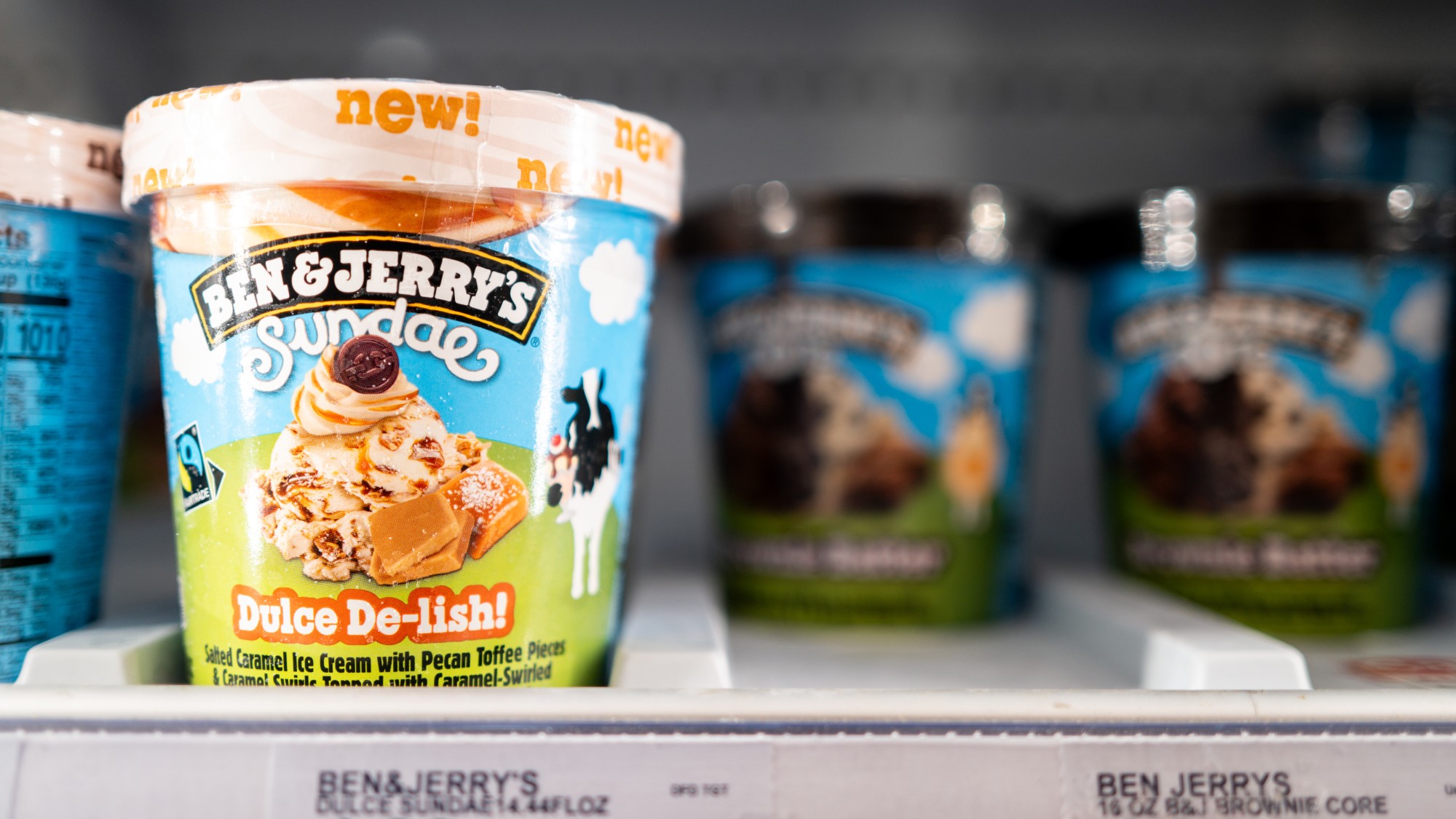The daily business briefing: November 4, 2022
Twitter employees brace for job cuts, New York judge orders monitor for Trump's business, and more


- 1. Twitter to announce sweeping job cuts
- 2. Court appoints outside monitor to oversee Trump's business
- 3. Teva agrees to pay N.Y. $523 million to settle opioid case
- 4. Stock futures rise ahead of October jobs report
- 5. China, Hong Kong stocks surge on speculation about easing of zero-COVID rules
A free daily email with the biggest news stories of the day – and the best features from TheWeek.com
You are now subscribed
Your newsletter sign-up was successful
1. Twitter to announce sweeping job cuts
Twitter told staff in a Thursday memo that it would start laying off workers on Friday, part of cutbacks billionaire Elon Musk said he would make after he took over the social media company last week. Twitter started 2022 with more than 7,500 employees. News reports since he closed his $44 billion deal to acquire the company have said the Tesla and SpaceX CEO planned to lay off up to half of Twitter's workers. Several Twitter employees filed a class action lawsuit saying the layoffs violate the federal Worker Adjustment and Retraining Notification Act, which requires employers with more than 100 employees to provide 60 days' written notice before a layoff affecting 50 or more workers at any single site.
2. Court appoints outside monitor to oversee Trump's business
A New York state judge, Arthur Engoron, on Thursday ordered an independent monitor to make sure former President Donald Trump's property company, the Trump Organization, doesn't transfer any of its assets without court approval. The monitor was requested by the office of New York Attorney General Letitia James, which has filed a $250 million lawsuit against Trump, his three oldest children, and the family's business, accusing them of "staggering" business fraud. Trump on Thursday filed a lawsuit against James, ignoring the advice of some of his lawyers. Trump said in the suit that "while James does nothing to protect New York against these violent crimes and criminals, she attacks great and upstanding businesses."
The Week
Escape your echo chamber. Get the facts behind the news, plus analysis from multiple perspectives.

Sign up for The Week's Free Newsletters
From our morning news briefing to a weekly Good News Newsletter, get the best of The Week delivered directly to your inbox.
From our morning news briefing to a weekly Good News Newsletter, get the best of The Week delivered directly to your inbox.
3. Teva agrees to pay N.Y. $523 million to settle opioid case
Israel-based Teva Pharmaceutical Industries agreed Thursday to pay up to $523 million to New York State to settle the last part of a trial over the company's role in the deadly U.S. opioid epidemic. The trial initially included businesses involved in every part of the supply chain. Other defendants in the once sprawling trial had already settled, leaving Teva and its affiliates as the last defendants. The settlement with New York comes as Teva works to seal a $4.2 billion nationwide settlement. "This is a landmark day in our battle against the opioid crisis," New York Attorney General Letitia James said in a statement.
4. Stock futures rise ahead of October jobs report
U.S. stock futures rose early Friday ahead of the release of the federal government's October jobs report. Futures tied to the Dow Jones Industrial Average were up 0.4 percent at 6:30 a.m. ET. S&P 500 and Nasdaq futures were up 0.6 percent. Economists polled by Dow Jones expected the October nonfarm payrolls report to show that U.S. employers added 205,000 jobs last month, which would be the slowest job growth in two years. Investors will review the report for indications of how the hiring picture might affect the Federal Reserve's aggressive interest rate hikes to bring down high inflation. The Dow dropped 0.5 percent on Thursday. The S&P 500 and the Nasdaq fell 1.1 percent and 1.7 percent, respectively.
A free daily email with the biggest news stories of the day – and the best features from TheWeek.com
5. China, Hong Kong stocks surge on speculation about easing of zero-COVID rules
Unverified speculation that China was preparing to lift its tough zero-COVID restrictions sent stocks soaring in mainland China and Hong Kong to their biggest gains in two years on Friday. Hong Kong's Hang Seng index closed up by more than 5 percent. The Shanghai Composite Index rose 2.4 percent. The gains came after Zeng Guang, the former chief scientist at the Chinese Center for Disease Control and Prevention, said at a closed-door conference organized by Citigroup in Hong Kong that China would make "significant" changes to its strict coronavirus rules, with officials already starting to reduce testing. The Hang Seng China Enterprises Index, led by tech companies, jumped by as much as 8.8 percent and posted its best weekly gains since 2015.
South China Morning Post The Wall Street Journal
Harold Maass is a contributing editor at The Week. He has been writing for The Week since the 2001 debut of the U.S. print edition and served as editor of TheWeek.com when it launched in 2008. Harold started his career as a newspaper reporter in South Florida and Haiti. He has previously worked for a variety of news outlets, including The Miami Herald, ABC News and Fox News, and for several years wrote a daily roundup of financial news for The Week and Yahoo Finance.
-
 Corruption: The spy sheikh and the president
Corruption: The spy sheikh and the presidentFeature Trump is at the center of another scandal
-
 Putin’s shadow war
Putin’s shadow warFeature The Kremlin is waging a campaign of sabotage and subversion against Ukraine’s allies in the West
-
 Media: Why did Bezos gut ‘The Washington Post’?
Media: Why did Bezos gut ‘The Washington Post’?Feature Possibilities include to curry favor with Trump or to try to end financial losses
-
 Currencies: Why Trump wants a weak dollar
Currencies: Why Trump wants a weak dollarFeature The dollar has fallen 12% since Trump took office
-
 TikTok: New owners, same risks
TikTok: New owners, same risksFeature What are Larry Ellison’s plans for TikTok US?
-
 Trump wants a weaker dollar, but economists aren’t so sure
Trump wants a weaker dollar, but economists aren’t so sureTalking Points A weaker dollar can make imports more expensive but also boost gold
-
 Leadership: A conspicuous silence from CEOs
Leadership: A conspicuous silence from CEOsFeature CEOs were more vocal during Trump’s first term
-
 The end for central bank independence?
The end for central bank independence?The Explainer Trump’s war on the US Federal Reserve comes at a moment of global weakening in central bank authority
-
 Can Trump make single-family homes affordable by banning big investors?
Can Trump make single-family homes affordable by banning big investors?Talking Points Wall Street takes the blame
-
 Phish food for thought: Ben & Jerry’s political turmoil
Phish food for thought: Ben & Jerry’s political turmoilIn the Spotlight War of words over brand activism threatens to ‘overshadow’ the big ice cream deal
-
 What a rising gold price says about the global economy
What a rising gold price says about the global economyThe Explainer Institutions, central banks and speculators drive record surge amid ‘loss of trust’ in bond markets and US dollar
